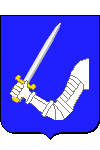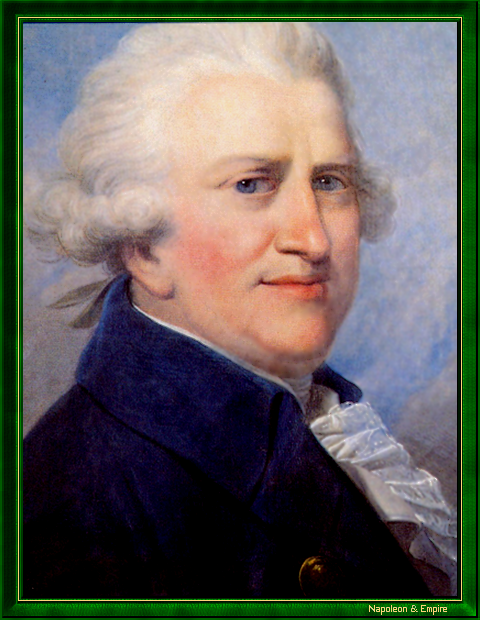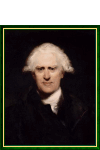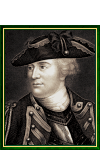Pasquale Paoli
Pronunciation:

Born on April 6, 1725 in Morosaglia [Merusaglia], Castagniccia, Pascal [in Corsican, Pasquale] Paoli was forced to follow his father Hyacinthe [Ghjacintu] Paoli, banished from the island by the Genoese, into exile in 1739.
Paoli therefore received most of his training in Naples , as a pupil at the military school of the Parthenopean city. He then joined the Corsican troops of the Kingdom of the Two Sicilies as a cadet.
In 1755, he was summoned by the main Corsican chiefs in revolt against Genoa, and landed in Corsica to continue his father's work, receiving the title of general on July 15. That same year, with the help of Jean-Jacques Rousseau, he drafted the Corsican Constitution, which was adopted in November by Corsican representatives at the Cunsulta di Corti. This text is considered the first constitution in the modern world, and appears to have inspired the United States Constitution of 1787.
On the military front, Pascal Paoli succeeded in driving the Genoese out of his island, ceding their rights to France (Treaty of Versailles, May 15, 1768).
After protesting in vain to all the courts of Europe, Paoli decreed a general uprising, but was defeated by the French at Ponte-Nuovo on May 9, 1769, and had to flee his homeland on an English frigate.
In 1789, Corsica having been declared an integral part of France, Paoli was appointed president of the departmental administration by his own people. On July 14, 1790, he disembarked at Macinaggio, on the eastern tip of Cap Corse, where he was triumphantly welcomed by the island's population.
In 1793, suspected of trading with England, he was impeached by the Convention. He then called the Corsican people to arms, proclaimed secession, and made contact with the English admiral Horatio Nelson, who sent him two thousand men and part of his squadron.
Having seized Bastia and Calvi, Paoli offered the sovereignty of his island to George III, King of England. A viceroy was sent.
Then Paoli himself was "invited" by the English government to leave Corsica. He complied, setting sail for England in October 1795. He settled in London, receiving a pension of 2,000 pounds from the British government.
He died there on February 5, 1807, without ever seeing his homeland again.
Pascal Paoli was initially buried in the London cemetery of Saint Pancrace; in 1889, his ashes were brought back to Corsica and now rest in the family chapel at his birthplace in Morosaglia.
"Pasquale Paoli" by Richard Cosway (Tiverton, Devon 1742 - London 1821).

The University of Corsica, founded 1765 by Pasquale Paoli and closed in 1769 by order of King Louis XV of France, re-opened in 1981 and was named "Università di Corsica Pasquale Paoli".
A bust in tribute to Pascal Paoli, in the nave of Westminster Abbey, testifies to the high esteem in which he was held across the Channel.
A full-length statue of the "Babbu di a Patria" (literally, in Corsican, "Father of the Fatherland") was erected in 1953 at the entrance to Morosaglia, and another honors his memory in Corte's Place Paoli.
Other portraits

"Pasquale de' Paoli" by Thomas Lawrence (Bristol 1769 - London 1830).

"Pascal Paoli". Eighteenth century engraving.